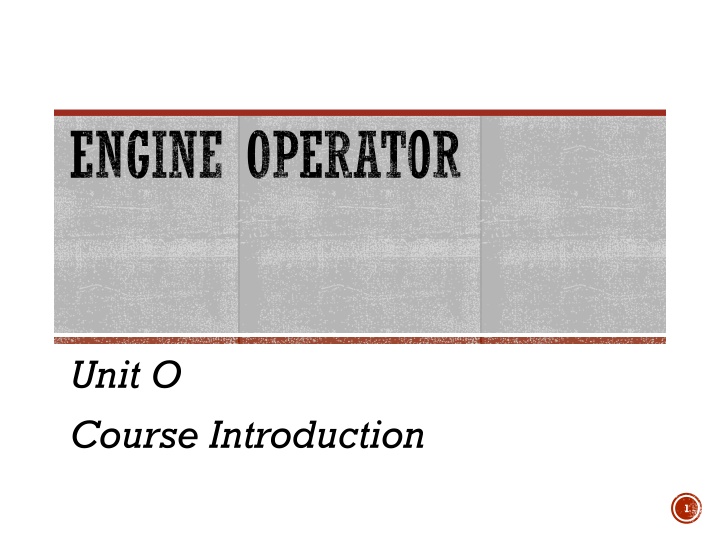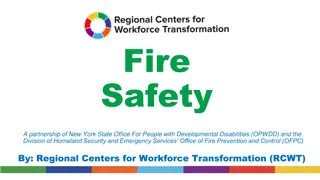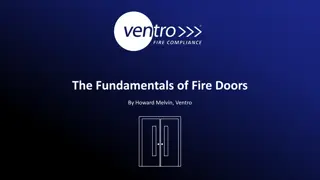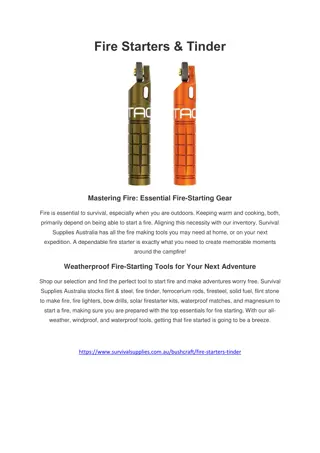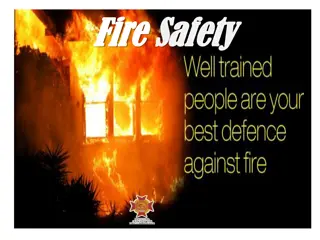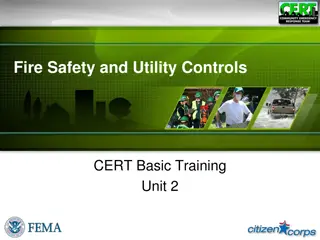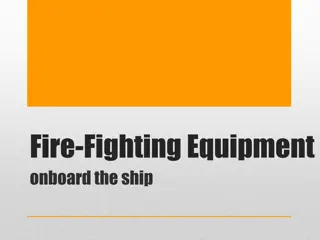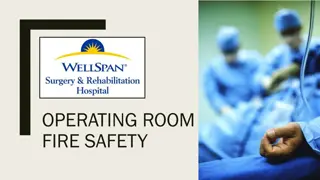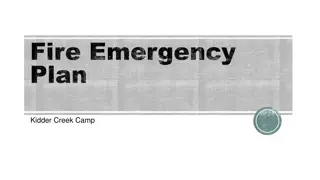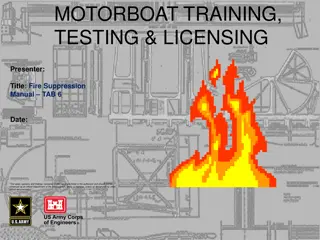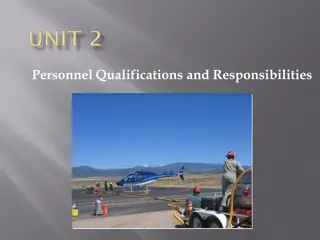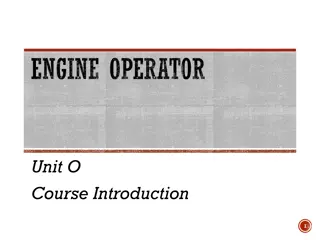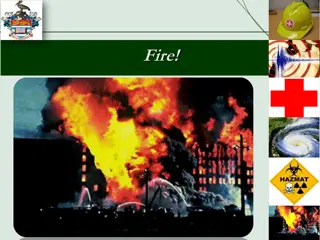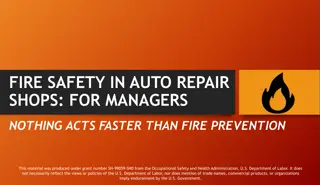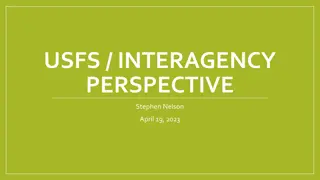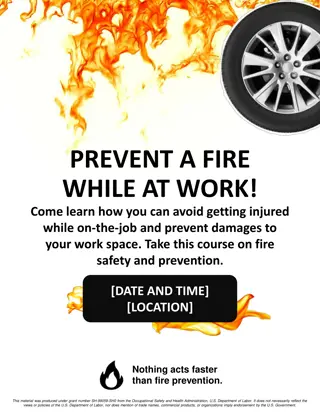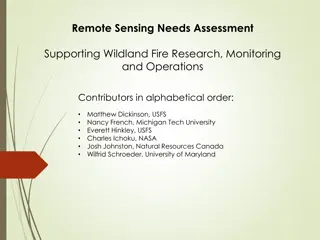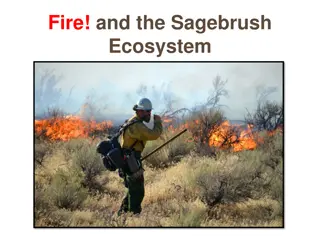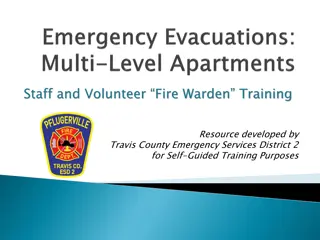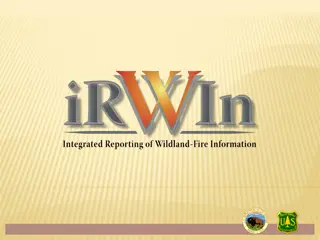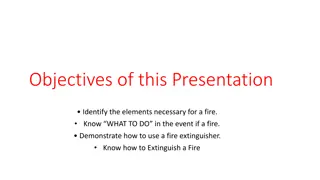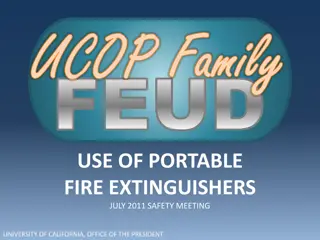Wildland Fire Engine Operator Course Overview
This course covers the essential aspects of being a Wildland Fire Engine Operator, including vehicle and pump maintenance, fire management operations, safety standards, and more. Students will learn how to perform maintenance procedures, document issues accurately, identify tasks during fire operations, describe pump theory, troubleshoot mechanical problems, and engage in tactical operations involving fire engines.
Download Presentation

Please find below an Image/Link to download the presentation.
The content on the website is provided AS IS for your information and personal use only. It may not be sold, licensed, or shared on other websites without obtaining consent from the author.If you encounter any issues during the download, it is possible that the publisher has removed the file from their server.
You are allowed to download the files provided on this website for personal or commercial use, subject to the condition that they are used lawfully. All files are the property of their respective owners.
The content on the website is provided AS IS for your information and personal use only. It may not be sold, licensed, or shared on other websites without obtaining consent from the author.
E N D
Presentation Transcript
ENGINE OPERATOR Unit O Course Introduction 1
INTRODUCTIONS Name Home unit Job title Highest qualification (Single Resource Boss, ICT3, ICT4, FFT1, or FFT2) Typical engine crew configuration for your home unit Do you have an initiated ENOP Position Task Book? 2
LOGISTICS & ADMINISTRATIVE CONCERNS Logistics o Exits and safety concerns o Lodging and transportation concerns o Breaks (restrooms, vending machines, drinking fountains, smoking areas, punctuality, etc.) o Message locations and telephones Administrative Concerns o Class roster o Course agenda o Student Workbook 3
STUDENT EXPECTATIONS EXERCISE Break into pre-established groups. Select a group spokesperson. List expectations on your flipchart. Share group expectations with the class. 5
INSTRUCTOR EXPECTATIONS OF STUDENTS Completion of pre-course work, exercises and assignments Mutual cooperation within groups Open-mindedness to processes and accomplishments Respect for classroom procedures and timelines On-the-job application of skills learned or refined during the course 6
COURSE OBJECTIVES Given Type 3, 4, and/or Type 6 engines, agency policy documents, ENOP Position Task Book, Fire Engine Maintenance Procedure and Record (FEMPR), fire management operations, project site conditions, and safety standards: Perform the correct vehicle and pump maintenance procedures on a wildland fire engine. 7
COURSE OBJECTIVES Document vehicle and pump maintenance and repair issues correctly in the FEMPR. Identify tasks to be considered by ENOPs during presuppression, suppression, and post-fire operations. Describe pump theory and demonstrate pump operation. 8
COURSE OBJECTIVES Discuss the various tactical operations in which engines will be involved. Troubleshoot various mechanical problems encountered on engines. Conduct ongoing risk assessments to identify hazardous situations and identify corrective actions to mitigate risk. Identify equipment limitations and capabilities. 9
COURSE PURPOSE Provide students with the knowledge and skills necessary to operate and maintain a wildland fire engine during presuppression, suppression, and post-fire operations. 10
INSTRUCTOR ROLES Instructor roles include: o Presenting information o Facilitating exercises o Asking questions o Presenting solutions o Answering questions 11
STL/INSTRUCTOR CADRE ROLES Strike team leader roles include: o Coaching and mentoring students during exercises o Performing student evaluations throughout the course o Answering questions o Facilitating exercises 12
STUDENT ROLES Student roles include: o Actively participating in class discussions and completing all exercises and assignments o Asking questions o Helping one another to succeed o Networking with other ENOPs 13
COURSE MATERIALS ENOP Student Workbook ENOP Vehicle Inspection Job Aid 14
FIELD EXERCISE GOALS Gain knowledge and test engine skills during actual on-the-ground situations as an ENOP. Network with instructors and other ENOPs to gain knowledge and test engine skills in a controlled environment. Participate as a member of a strike team. 16
FIELD EXERCISE LOGISTICS Exercise length Course hours Transportation Clothing requirements Meals Crew configuration Strike Team Leader (Coach/Mentor) 17
PERFORMANCE AND EVALUATION 18
STUDENT EVALUATION ENOP student success is measured through Quizzes ENOP Training Evaluation Form 19
THE ENOP CERTIFICATE Students who pass all quizzes and the evaluation will receive their course certificate at the end of the training. Students who experience deficiency in specific areas will receive immediate feedback from their instructor(s); their course certificate and evaluations will be returned to the home unit for remediation. 20
BECOMING ENOP QUALIFIED Individuals desiring certification as an ENOP are required to complete the tasks found in the ENOP Position Task Book. Completion of the position task book is a function of the home unit. No tasks will be signed off while attending the ENOP course. 21
